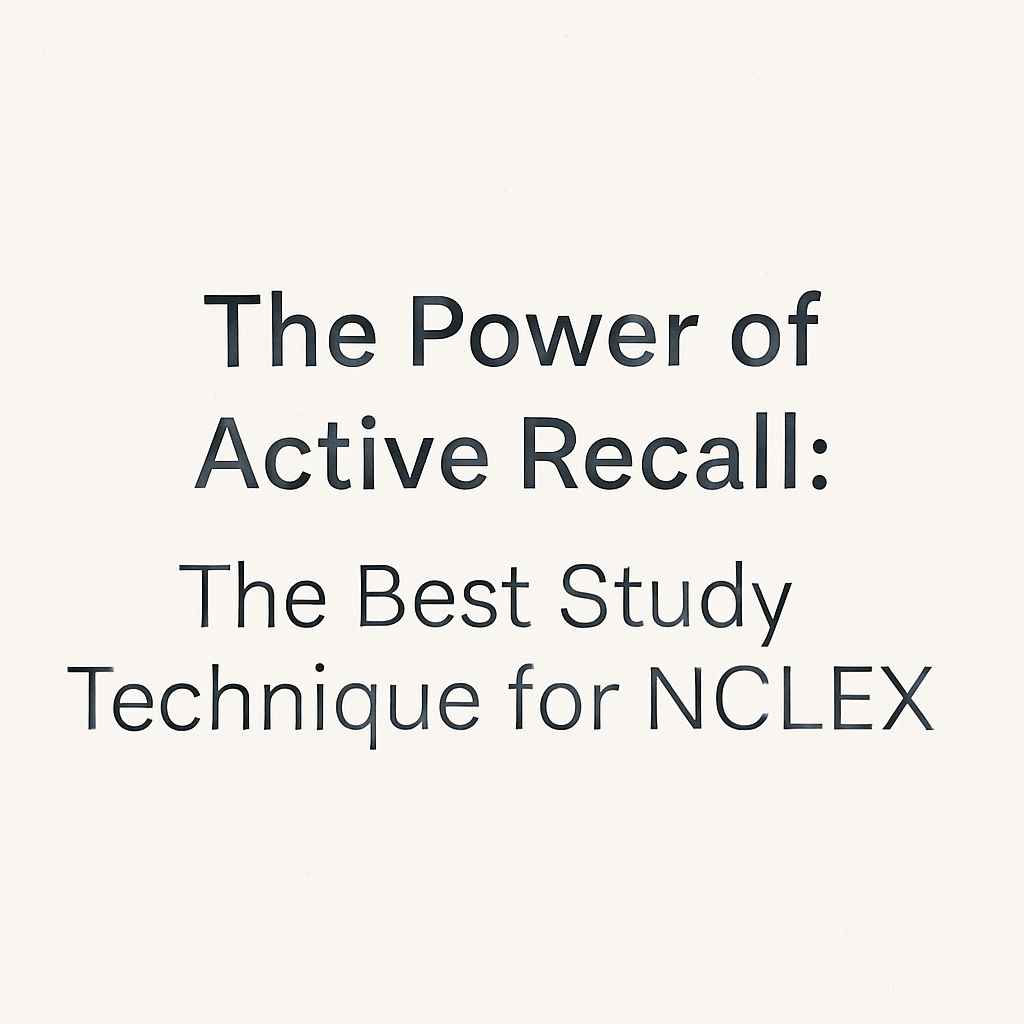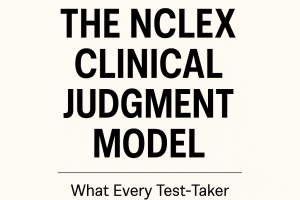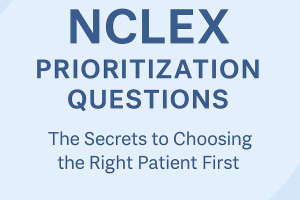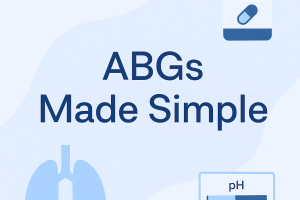The Power of Active Recall: The Best Study Technique for NCLEX

When it comes to preparing for the NCLEX, not all study methods are created equal. Some students spend hours passively rereading notes and textbooks, only to find they can’t recall the information when it counts. If you want to maximize your study efficiency and truly lock in critical nursing concepts, there’s one method you must master: active recall.
In this blog, we’ll dive into why active recall is the most powerful study technique for NCLEX success, and how you can start using it today.
What Is Active Recall?
Active recall is a learning technique that forces your brain to retrieve information from memory, rather than just recognizing it on a page.
In simpler terms:
- Passive review = reading and rereading
- Active recall = testing yourself without looking at the material
When you actively pull information out of your brain, you create stronger memory pathways, making it easier to retrieve that knowledge under pressure—exactly what you need on NCLEX exam day.
Why Active Recall Works for NCLEX Prep
The NCLEX is not a recognition test; it’s an application test. You cannot just recognize facts—you need to recall, analyze, and apply information to real-world clinical situations.
Benefits of Active Recall:
- Improves long-term memory retention
- Strengthens critical thinking skills
- Identifies knowledge gaps early
- Reduces overconfidence from passive studying
- Mimics real NCLEX testing conditions
Active recall prepares your brain to work under stress and recall complex information quickly, which is exactly what the exam demands.
How to Practice Active Recall for NCLEX
1. Use Practice Questions Daily
- Answer 20–50 NCLEX-style questions without notes
- Review each rationale carefully
- Focus on why the right answer is right—and why the wrong ones are wrong
2. Create Your Own Flashcards
- Write a question on one side and the answer on the other
- Try to recall the answer before flipping the card
- Use apps like Anki or Quizlet for digital flashcards
3. Brain Dump Practice
- After studying a topic (like heart failure or pharmacology), close your book
- Write down everything you remember without looking
- Then compare it to your notes and fill in the gaps
4. Teach the Material
- Explain a concept aloud to yourself, a study buddy, or even your pet
- Teaching forces your brain to organize and retrieve information clearly
5. Use the “Blurting” Technique
- Choose a topic (e.g., ABGs, cardiac meds)
- Set a timer for 5 minutes
- Write down as much as you can from memory
- Review what you missed, then repeat
How to Build Active Recall into Your Study Routine
- Morning: Review 10–15 flashcards
- Afternoon: Do 30 NCLEX-style practice questions
- Evening: Summarize a topic aloud or create a brain dump
- Weekly: Full mock test under timed conditions
Consistency is key. Even 15–30 minutes of daily active recall can dramatically increase your retention over time.
Sample Active Recall Question for Practice
Topic: Signs of Right-Sided Heart Failure
Question: List three key symptoms of right-sided heart failure without looking at your notes.
✅ Answer:
- Peripheral edema (swelling of legs and feet)
- Jugular vein distension (JVD)
- Ascites (fluid buildup in the abdomen)
Challenge yourself to actively pull these facts from memory instead of rereading.
Final Thoughts
Active recall is not the easiest method, but it is the most effective. It trains your brain for real-world conditions, reduces the likelihood of freezing on test day, and helps ensure you truly understand—and can apply—critical nursing concepts.
If you want to pass the NCLEX confidently, make active recall the foundation of your study plan starting today.
You will study smarter, remember longer, and perform better.






